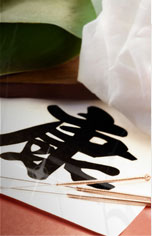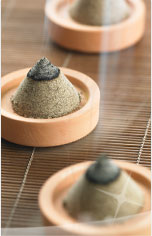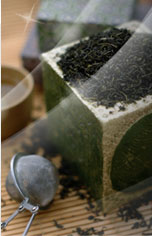|
The menstrual cycle, counted from the first day of one period to the first day of the next, is not the same for every woman. On average, a woman gets her period every 21 to 38 days. A period usually lasts about 2 to 8 days, and it can be light or heavy, painful or pain-free, long or short. A woman may have irregular periods if the time between each period keeps changing; if the amount of blood in each period shifting from light to heavy or vice versa; or the days of bleeding vary significantly. Common causes of irregular periods include: pregnancy, breastfeeding, change in birth control pill, extreme weight loss, excessive exercising, stress, and other medical conditions including PCOS and thyroid problems. Treatment for irregular periods is usually hormonal contraceptives as well as the treatment for any underlying problems such as an eating disorder and thyroid problems.
Menstruation in TCM
Traditional Chinese Medicine (TCM) has recognised and treated gynecological problems, including irregular menstruation for thousands of years. TCM understands female physiology directly in relation to the functional relationships between the Zang Fu organs, meridians (the channels through which Qi, the vital energy of the body, flows) and reproductive organs.
In a normal, healthy menstrual process, a woman's Essence stored in the Kidney will gradually rise to a particular level every month; the Kidney will then produce a substance called Tian Gui (Heavenly Water). Under the promoting action of Liver Qi, Ren meridian (Conception vessel / Sea of Yin) and Chong meridian (Penetrating vessel / Sea of Blood), the two of eight Extra-ordinay Meridians, become exuberant and flushed with Blood. When the Blood in Ren and Chong meridians become overflowing, it drifts into the Uterus. Interacting with Tian Gui in Uterus, the Blood from Ren and Chong meridians will be transformed into mense. With the guidance of Liver Qi, Yang Qi in Du meridian makes this menstrual blood exit the Uterus during menstruation.
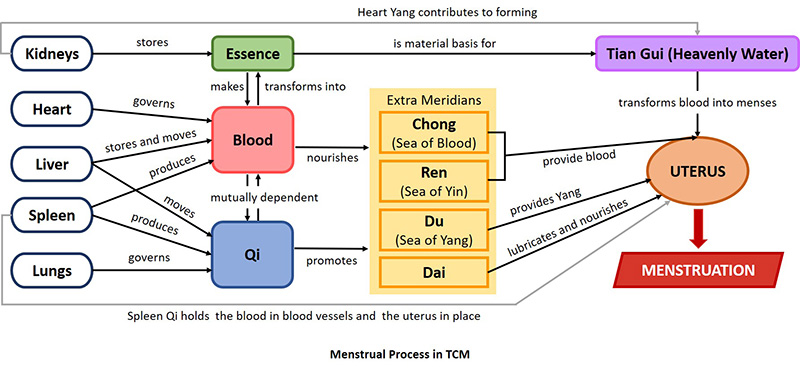
If any of Zang Fu organs, meridians, or substances (Qi, Blood and Essence) involved in menstrual process are out of balance, it can cause problems in menstruation. For example, if the Blood or Essence as the material basis of menstrual blood is deficient, periods may become scanty, late, or absent; if the Liver’s function of promoting free flow of Qi and Blood is impaired, periods may become heavy, long, or late.
Emotional stress, such as anger, frustration and anxiety, can easily interfere with the flow of Qi and Blood. Improper diet, excessive / insufficient physical activities, overwork, excessive sexual activity as well as hereditary and environmental factors can develop imbalances and dysfunctions of various internal organs, leading to irregularities in menstruation.
TCM classifies the menstrual irregularities according to the regularity of cycle, duration of period, amount of bleeding, and color and texture of menstrual blood. In TCM, periods with 26-32 days of cycle, 4-6 days of bleeding with consistent flow of bright to dark red blood without clots are regarded as normal periods. However, the regularity of the cycle is more important; within a broad range, “normal period” is what’s normal for each woman. For example, if the cycle length varies from month to month, this would be considered abnormal even if it falls within 26-32 day range. On the other hand, if the period occurs regularly every 38 days, this would be considered normal.
Classification of Irregularities
Irregularities of the cycle |
| |
Early Periods |
Periods that come earlier than usual consistently, or for at least 2 consecutive cycles. |
| |
|
TCM Patterns: Qi deficiency, Kidney Yin deficiency, Blood-Heat |
| |
| |
Late Periods |
Periods that come later than usual consistently, or for at least 2 consecutive cycles. |
| |
|
TCM Patterns: Blood deficiency, Kidney Yang deficiency, Cold in the Uterus, Qi stagnation |
| |
| |
Irregular Periods |
Periods that come sometimes early and sometimes late, unpredictably, for at least 3 consecutive cycles. |
| |
|
TCM Patterns: Liver Qi stagnation, Kidney Yin deficiency, Kidney Yang deficiency |
| |
| |
No Periods
(Amenorrhea)
|
Periods that have stopped for at least 3 months without particular reasons, such as pregnancy, breastfeeding, use of contraceptive pills or other medications that affect the hormone levels. |
| |
|
TCM Patterns: Blood deficiency, Yang deficiency, Yin deficiency, Qi stagnation, Blood stasis, Damp in the Uterus |
| |
Irregularities in the duration |
| |
Long Periods |
Periods that last longer than usual, but do not necessarily have heavy bleeding. |
| |
|
TCM Patterns: Liver Qi stagnation, Blood stasis, Kidney deficiency with Empty Heat |
| |
| |
Short Periods |
Periods that last only 2-3 days. It could be classified as scanty periods. |
| |
|
TCM Patterns: Blood deficiency, Kidney Yin or Yang deficiency, Blood stasis, Phlegm obstructing the Uterus |
| |
Irregularities in the amount of bleeding |
| |
Heavy Periods |
Periods that are heavier than usual, requiring more frequent changes of sanitary products. |
| |
|
TCM Patterns: Qi deficiency, Blood stasis, Blood-Heat |
| |
| |
Scanty Periods |
Periods that are lighter than usual, or extremely sparse like a small drip, which require only few changes of sanitary products. |
| |
|
TCM Patterns: Blood deficiency, Kidney Yin or Yang deficiency, Blood stasis, Phlegm obstructing the Uterus |
| |
Irregularities in the color and texture of blood |
| |
 |
|
Pale red |
|
 |
|
Thin, watery, diluted texture |
| |
|
TCM Patterns: Qi deficiency, Spleen deficiency |
|
|
TCM Patterns: Qi deficiency, Blood deficiency |
| |
|
| |
 |
|
Light red |
|
 |
|
Slippery, jelly-like texture |
| |
|
TCM Patterns: Blood deficiency |
|
|
TCM Patterns: Dampness |
| |
|
| |
 |
|
Bright red |
|
 |
|
Thick texture with no or some small clots |
| |
|
Normal |
|
|
Normal |
| |
|
| |
 |
|
Dark red or brownish red |
|
 |
|
Thick, clumpy texture with big clots |
| |
|
Normal |
|
|
TCM Patterns: Blood stasis, Cold in the Uterus |
| |
|
| |
 |
|
Blackish or purplish red |
|
| |
|
TCM Patterns: Qi stagnation, Blood stasis |
|
|
NOTE: The names of organs are capitalized when referring to the entire, functional organ systems in TCM perspective: Liver, Blood, etc. The names of organs are lower-cased when referring to the distinct, biomedical organs: liver, blood, etc.
TCM Treatment for Menstrual Irregularities
TCM treatment for irregular periods is based on the different patterns of internal imbalance. By restoring the balance and harmony of the whole body, TCM treatments can not only regulate periods naturally, without medication, but also improve overall health of women.
TCM practitioners will determine which Zang Fu organs and meridians are out of balance, based on the clinical information collected via a complete medical history intake and a thorough diagnostic examination to analyze Yin & Yang, Qi, Blood and Body fluids. Once the pattern differentiation diagnosis is made, a personalized treatment plan will be designed for each patient.
Although Chinese herbal medicine will be the main treatment form for irregular menstruation, acupuncture, moxibustion, and dietary and/or lifestyle modification may be recommended to regulate periods more efficiently. A typical acupuncture treatment schedule may begin with 1-2 sessions a week, tapering as the patient’s condition improves. Healing time depends on the degree of imbalance in the organ systems; in general, it takes longer to restore the balance if multiple organs and meridians are involved.
Chinese Herbs
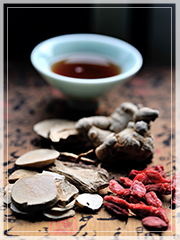
Chinese herbal medicine is an essential treatment modality for most gynecological disorders, including irregular periods. Chinese herbal formulas help regulate periods by nourishing and balancing Yin and Yang, Qi and Blood, harmonizing Zang Fu organs, breaking the stagnation of Qi and Blood, draining Dampness, and warming the Uterus.
In a clinical study, 405 patients with irregular menstruation were treated with Chinese herbal formula Tiaojing Zhixue (n=304) or Fuxuening (n=101). 97.4% of patients treated with Tiaojing Zhixue and 87.1% of patients treated with Fuxuening restored regular menstruation. Over 80% of patients also showed improvement in other clinical symptoms, including reductions in weakness, insomnia and pain.1
Chinese herbs are usually used in a combination of 2 to 30 herbs and are customarily prescribed for each patient. Herbs can be administered to a patient in many forms. Raw herbs can be taken on a brewed tea form. This herb tea form is strong and quick acting; however, it takes time for cooking and preparation and the taste can be quite strong initially. The herbs can also be prescribed in many other forms such as powder, capsule, pill, topical and tincture. Herbs possess many strengthening as well as therapeutic effects because of their content of various nutrients and vitamins, which are essential to the body. While Chinese herbal medicine can be very potent, it may take a few weeks to months before the full effects are noticed.
Acupuncture
Acupuncture is a safe and effective form of treatment for irregular periods. By inserting fine, sterile needles into specific points on the body, acupuncture stimulates and promotes the movement of Qi and Blood. When Qi and blood circulate freely throughout the body, the balance of Yin & Yang and the normal function of Zang Fu organs will be restored; therefore, normal menstrual process will be resumed. Acupuncture also boosts energy level and provides deep relaxation to help reduce stress, ultimately enhancing the human body’s natural ability to heal itself and encouraging greater health and well-being of both body and mind.
Researches have shown that acupuncture can regulate menstruation by:2
- Reducing stress hormones responsible for irregular periods.
- Affecting the blood levels of follicle-stimulating hormone (FSH), luteinizing hormone (LH), estradiol (E2), and progesterone (P).
- Accelerating the release of brain and pituitary ß-EP, which inhibits the over-production of gonadotropin-releasing hormone (GnRH) and luteinizing hormone (LH).
- Normalizing the hypothalamic-pituitary-ovarian axis (HPOA), a key process of normal menstruation.
- Promoting the function of hypothalamic pituitary-adrenal axis (HPAA) leading to an increase in the synthesis and secretion of adrenal steroid hormones, which resets the negative feedback of estrogen to HPOA.
In a controlled clinical trial study conducted at Zhangwu People's Hospital in Liaoning, China, the efficacy of the combined acupuncture and Chinese herbal medicine therapy was compared with hormonal medications in the treatment of irregular menstruation. The acupuncture plus Chinese herbal medicine therapy group achieved a 92% total effective rate, while the hormonal medication therapy group achieved an 80% total effective rate. The women in the acupuncture plus Chinese herbal medicine group experienced significantly fewer adverse effects than those in the hormonal medication group.3
Lifestyle and Dietary Advice
- Keep the abdomen warm during menstruation
In TCM, "Cold in the Uterus" is one of the most common diagnosis for menstrual irregularities and infertility. This condition is caused by overconsumption of cold food or prolonged exposure to a cold environment. Women should always keep their abdomen warm, but especially during menstruation and after childbirth. Cold bathing, exposing abdomen on cold and windy days, being drenched with rain, sitting or lying on the wet ground or working in damp fields should be avoided. Consuming cold food and drink is not recommended during menstruation as well.
- Avoid heavy physical activities during menstruation
Overwork during menstruation leads to deficiency and sinking of Kidney Qi, which may cause irregular periods. Although regular exercise is one of the most effective ways to balance the hormone levels, excessive exercise during menstruation can damage Qi and Blood.
- Avoid sex during menstruation
TCM believes that excessive sexual activity can damage Kidney Qi and Essence. Also, sex during period can cause stagnation of Qi and Blood in the Uterus and heavy periods.
- Manage your stress
Stress diverts the blood supply away from the ovaries and interferes with the body’s ability to respond to hormones. To make matters worse, high levels of estrogen amplify the effects of stress hormones such as cortisol, creating a negative feedback loop that increases the stress level. In TCM, stress inhibits the flow of Qi and Blood. Breathing techniques, meditation and mind-body programs such as Yoga can help reduce stress and promote deep relaxation. Read an inspiring book, having a massage, going to the spa, or a bubble bath with candles and music may help as well.
|

